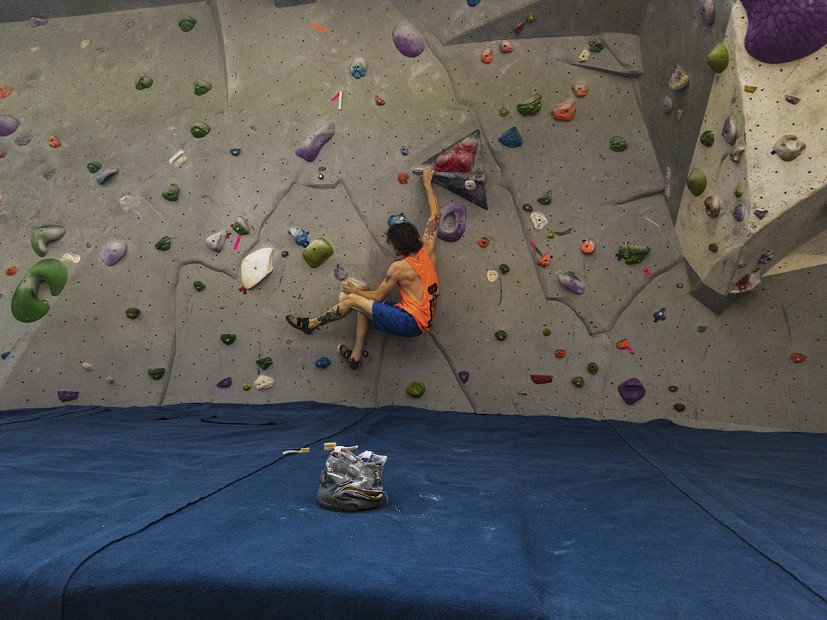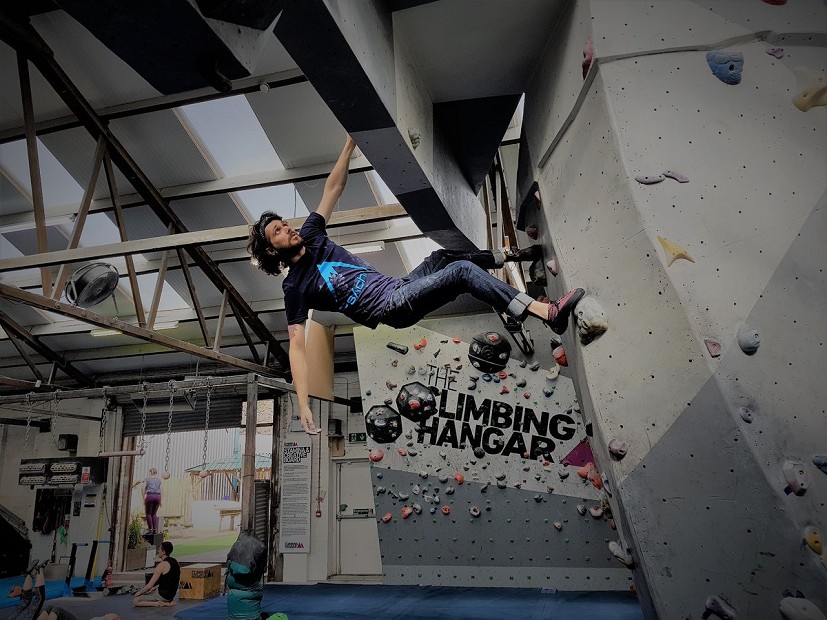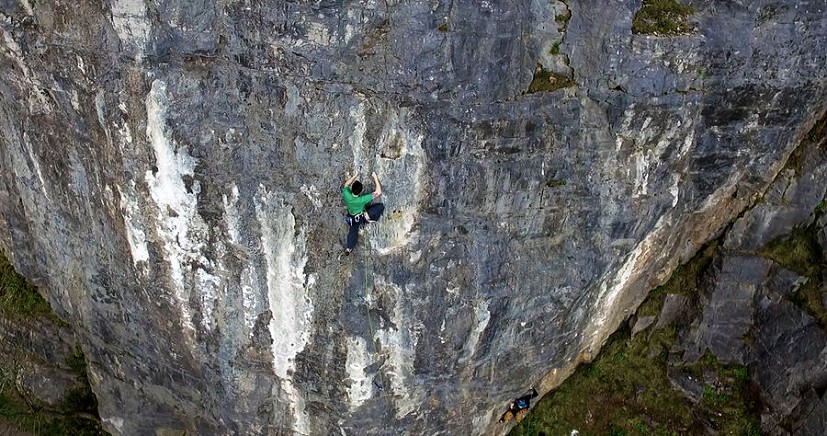
As a follow up to our recent article on bouldering as therapy for depression, Gerard West writes about the taboo topic of men and mental health, and reveals how climbing helped him learn to open up to others.
Mental health has always been a subject that's hard to broach for many people. Whether you're approaching your friends, your partner or your children. Men are classically gruff, proud and stoic creatures. It's just part of how we are built; add a dose of testosterone to the social norm and you get a pretty stubborn human who won't talk about the things that affect one's health. This means that the subject of mental illness can be widely avoided. We don't want to be seen as weak, broken or unstereotypically overemotional. Masculinity is literally defined as "the possession of qualities traditionally associated with men."
As a man, my masculinity is very important to me. The problem is, though, that with the desire to have those qualities and show that we have potential to be there as a protector, to show our physical strength and never falter in the care of those who are important to us, some 'stuff' is pushed under the rug and either ignored or suppressed. Amongst this stuff is the subject of mental health.
It would seem quite contradictory that I would be, as a man, discussing the issues surrounding mental health and wellbeing so openly, whether on my social media platforms, through articles such as this one or in person with people whom I may or may not know very well - but I do. I learned quite early on in my life that keeping things quiet and not being open was not only detrimental to my own mental health, but also to the relationships with people in my life. I was always a quiet kid in school and this made me an easy target for bullies who picked up on the fact that I was not only different in my behaviour, but also extremely withdrawn yet prone to extreme emotional outbursts when provoked.
When I reached my mid-teenage years, this silence had built up like a pressure valve and exploded into a full-scale breakdown, my inability to convey my thoughts and feelings had manifested to a point where I could no longer control that pressure and it spilled out. All the doctors could do at the time was prescribe medication to me, there was no counselling available 'til later on down the line. When I was 20, I suffered a full-scale psychotic episode, which in turn destroyed my relationship with a partner whom I was living with. Triggered by the fact that I couldn't hold down a job, this eventually ended and I moved home to my parents so I could recover. During that time, I was referred to the mental health team from my local hospital and counselling began. I remember when the team first came to assess me and one of them was male. I flat out refused to talk around him, he understood completely - being a counsellor - but I still felt bad that I couldn't talk about my issues in front of him. The male ego can be quite strong; especially when you don't feel strong. Over time, though, I opened up and I spoke more but only to women. I just couldn't face the idea of my masculinity being somehow damaged by showing my weaknesses; this was at least a start. I had gone from not speaking whatsoever to sharing my feelings, my thoughts and experiences.
***
Fast forward to my mid-twenties, I had been through the system a few times on differing therapies and medications and I had hit a wall. I was spiralling out of control because it was easier to booze my way through processing the complex and extreme emotional states I was fluctuating through as my mental illnesses manifested more and more. I was taken along to my local wall with some friends and the love story began with climbing and bouldering. Eventually, that original group petered out, they went on to new hobbies and it was just me at the centre from the original crowd, but thankfully I had made some new friends along the way. We slowly added more people to our little fold and we developed into a pretty solid crew who are all still climbing and training with each other to this day. I consider these men and women to be my closest friends whom I trust with my life. They knew something was up, my idiosyncrasies and emotional extremes were not lost on them and I figured they needed to be clued in.
It took guts; more courage than I had ever mustered for anything else in my life. I sat down with them over a period of time and told them in short doses, I started by just saying "I'm not well in the head." And they told me they had figured that out; they rallied around me and made me feel like I was still one of them, a part of the team and a valued friend. They ask me a lot how I am getting on, if I need anything or just an ear if I need to vent and most of the time I'll say maybe in a non-committal way and they are fine with that. Knowing my friends are there for me gives me strength and I will always offer them the same, a person to talk to, vent to or even just to sit with and have a beer. Even after learning that I shouldn't sit silent, it took me almost ten years to be able to open up to my male counterparts and I have climbing to thank for that.
For me, getting on the wall helps to calm my mental chaos and regain focus. It made me more proactive in caring for my physical health and gave me a goal: to help anyone who is suffering alone or can't find the courage to speak up and talk about the things that are hard to talk about. Just last week, a man whom I don't know very well but climb with often spoke with me and after learning that I live with mental illness, had the courage to share some of his story. That courage was so inspiring to me, it made me feel like something had been accomplished and he left the centre that day looking like a weight had been lifted. I don't know his full story and that's fine but just that acknowledgement alone will hopefully be a catalyst in his own management and recovery.

Over the last year and a half, I have learned a lot about myself through being open and transparent about my mental health issues and the difficulties they present in my life as well as my climbing career, but being open and sharing my own experiences, I can only hope to inspire both men and women to stamp out the stigmas of mental illness; that we are weak, overly emotional, living with fake illnesses and are just anti-social or lazy. None of this is true, not one bit! It takes more courage and more strength to be open and communicative of your issues than it does to hold them down and be silent. A diagnosis is not the end of your life or your future; for me, it's a stripe of honour, it shows I've fought a life-long war against my own mind and the fact I am still here and fighting strong means the battle goes in my favour. How do you want your own battle to go? Do you want to win? I know for sure that I do! If you're reading this and you feel like you need to talk, now is the time so please, don't hide behind masculinity or ego; show your true strength and talk. It's time to fight the stigma, fight the demons; it's time to change.
















Comments